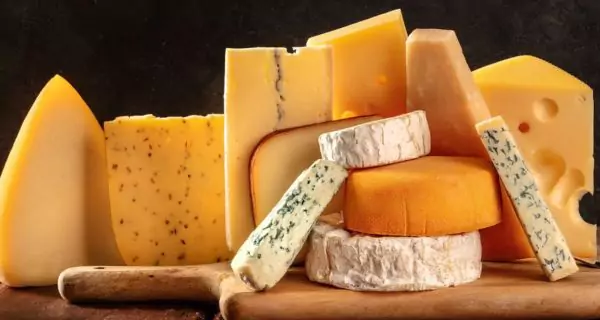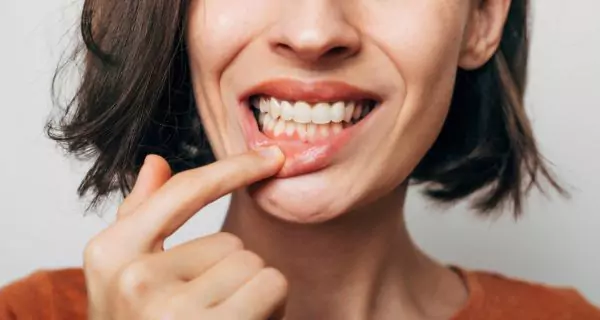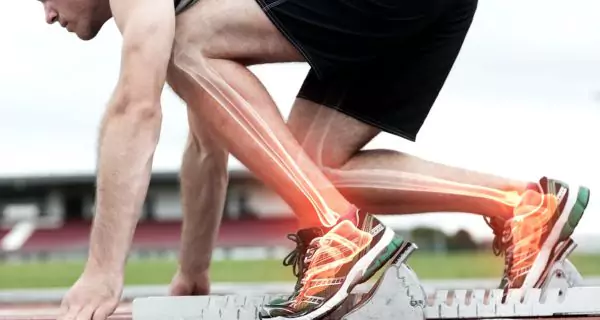Last Updated on: 13th December 2025, 05:55 am
Yes, cheese is very good for teeth. It is rich in calcium, phosphorus, casein, vitamins, and probiotics. These nutrients strengthen enamel, prevent cavities, support healthy gums, and increase saliva production. When consumed in moderation, cheese offers benefits for oral health and provides general advantages for bones, muscles, and digestion.
Cheese is a dairy food made from cow’s, goat’s, or other source of milk. People have enjoyed it for centuries in many cultures.
Rich in protein, calcium, and other nutrients, it is both tasty and healthy. Beyond being part of meals and snacks, cheese also plays a role in keeping teeth and gums strong.
In this article, we look at what is inside cheese, how it helps the mouth, and what risks to keep in mind.
What is cheese?
Cheese is a dairy food made from milk protein that comes from a cow, goat, sheep, or buffalo. By coagulating proteins and aging or fermenting the milk, many types are created:
- Fresh cheese: soft, mild taste, low in fat and salt.
- Semi-cured cheese: firmer texture, stronger flavor, medium fat, and salt.
- Cured cheese: hard, intense taste, rich in fat and protein.
- Fermented cheese: aged with bacteria, sharp flavor, and contains probiotics.
As you can see, each cheese has its distinctive texture, flavor, and nutrition profile.
What nutrients does cheese contain?
Cheese is a nutrient-dense food that supports oral and general health:
- Calcium: strengthens teeth and bones.
- Phosphorus: works with calcium to rebuild enamel.
- Casein: protects enamel and prevents cavities.
- Vitamins A, B2, D, and E: keep gums and tissues healthy.
- Proteins: help repair and build tissues.
- Probiotics: found in aged and fermented cheeses, they balance oral and gut bacteria.
Together, these nutrients make cheese more than just a tasty food. They turn it into a functional ally for oral health. With minerals, proteins, and probiotics, cheese helps protect teeth, gums, and enamel while affording general benefits for bones, muscles, and digestion.
How does cheese help teeth and gums?
Cheese is one of the most tooth-friendly foods; it is full of nutrients that support a healthy mouth at every stage of life. Let’s see all the benefits for oral health.
Can cheese prevent cavities?
Yes, cheese is one of the best foods to protect teeth because it changes the environment in the mouth after eating.
It helps by:
- stimulating saliva to clean and neutralize acids
- supplying minerals (calcium, phosphorus, casein) to rebuild enamel
- raising the oral pH for up to 30 minutes, slowing down bacterial damage
Eating a small piece of cheese after meals gives your teeth a natural shield against cavities.
How does cheese protect teeth from acid?
Acid is one of the main enemies of enamel, but cheese provides a natural defense.
It protects by:
- coating teeth with proteins that act as a barrier
- concentrating calcium and phosphate on the surface
- reinforcing enamel so acids can’t erode it easily
Note: eating cheese regularly helps teeth resist daily acid attacks.
Does cheese support gum health?
Cheese isn’t only good for teeth; it also supports healthy gums.
It helps by:
- supplying vitamins A, B2, D, and E to protect tissues
- reducing inflammation and supporting healing
- repairing soft tissues with proteins
Healthy gums mean stronger teeth, and cheese contributes to both.
Do probiotics in cheese improve oral health?
Fermented cheeses like Gouda, Swiss, or blue contain probiotics that support oral balance.
They work by:
- reducing harmful bacteria linked to gum disease and bad breath
- balancing good and bad bacteria in the mouth
- supporting gut health, which is connected to oral and immune health
Probiotic cheeses protect not just your mouth, but your entire system.
How much calcium does cheese provide?
Cheese is one of the richest sources of calcium, essential for teeth and bones.
For example:
- 120 g ricotta: 257 mg calcium (~25% daily needs).
- 120 g brie: 221 mg calcium.
- 120 g gouda: 840 mg calcium.
Adding different kinds of cheese to your diet can be beneficial. Remember that cheese is a complement, not a replacement, for brushing, flossing, or a varied diet. Balance is the key to getting the most from its benefits.
What are the benefits of cheese for general health?
Cheese supports more than just teeth:
- Strong bones: Calcium and vitamin D prevent osteoporosis.
- Healthy muscles: High-quality protein repairs and builds tissue.
- Good digestion: Probiotics in fermented cheeses improve gut health.
- Satiety: Healthy fats help control hunger and appetite.
While our focus is on oral health, it is wise to remember that cheese also brings general health benefits.
What are the disadvantages of cheese consumption?
Cheese brings many advantages for teeth and overall health; but like any food, it also has some drawbacks to consider.
Can cheese cause tartar?
Yes, if consumed often without good oral hygiene, cheese may promote plaque that turns into tartar.
This can lead to:
- Gum inflammation
- Bad breath
- Periodontal disease
Maintaining complete oral hygiene is very important; always brush and floss after eating cheese, especially at night.
Does cheese have too much fat?
Some cheeses, especially the cured type, are high in saturated fats. Too much may:
- raise cholesterol
- increase triglycerides
- raise the risk of heart disease
Choose lighter options like cottage, ricotta, or semi-skimmed mozzarella, especially if you partake of it daily.
Does cheese have too much salt?
Yes, cured cheeses can be high in sodium, which may:
- raise blood pressure
- cause fluid retention
- increase kidney stone risk
Opt for low-salt cheeses whenever possible and drink water after eating.
Can cheese cause lactose problems?
Yes, some people cannot digest lactose well, which may cause:
- gas
- bloating
- stomach pain
Try lactose-free cheese or aged cheeses, which usually contain a lower amount of lactose.
Can cheese cause allergies?
Yes, people allergic to milk proteins can have reactions such as:
- skin rashes
- stomach upset
- breathing problems (in severe cases)
If you have allergies, avoid cheese and ask your doctor to recommend safe alternatives.
Because of these disadvantages, it’s important to learn how to eat cheese in a safe way for the entire body.
How to eat cheese for healthy teeth and body?
Cheese can be great for your teeth, but only if you eat it in the right way. The secret is balance: enjoy the good parts while avoiding too much fat or salt.
Here are some easy ideas.
What cheeses are best?
Not all cheeses are the same. Some are better for daily use, while others are fine as a treat:
- Fresh cheese like ricotta, cottage, or farmer’s cheese is soft, and safe to eat often.
- Mozzarella or semi-skimmed cheddar provide calcium and protein for strong teeth and bones.
- Matured cheeses such as Swiss, Gouda, blue, or Grana Padano bring probiotics for good bacteria; however, it is best to eat them less often because they contain more fat and salt.
How can you eat cheese in a healthy way?
Cheese is great, but remember a few simple rules:
- Select low-fat, low-salt cheeses if possible.
- Eat small portions, about 30–50 g a day (a few slices or cubes).
- Pair cheese with fruit, vegetables, or nuts instead of cold cuts.
- Keep stronger cheeses (blue or aged) for special occasions.
What are some easy cheese snacks for teeth?
You don’t need fancy recipes to enjoy cheese and keep your teeth healthy. Here are a few simple ideas:
- Try carrot sticks with fresh cheese cubes. They are crunchy and soft at the same time – and good for your enamel.
- A spinach salad with mozzarella and walnuts is fresh, full of vitamins, and easy to make.
- Apple slices with cheddar are the perfect mix: the apple cleans, the cheese protects.
- A whole wheat wrap with chicken and fresh cheese makes a light dinner that still fills you up.
Cheese can be a friend for your teeth if you eat it smartly. Small portions, healthy choices, and good combinations will impart the benefits without the downsides.
Conclusion
Cheese is rich in proteins, minerals, and nutrients that support oral health. Regular consumption helps prevent cavities, strengthen teeth, and maintain healthy gums.
To maximize benefits, practice good oral hygiene, eat a balanced diet, and visit your dentist regularly.
Frequently Asked Questions
Can I eat cheese before bed?
How much cheese should I eat a day?
Can I give cheese as a snack after school to kids?
Can eating cheese give me bad breath?
Is melted cheese good or bad for teeth?
Voice and Search (Q&A)
Can kids eat cheese for healthy teeth?
Yes, cheese is a tooth-friendly snack for kids. It gives calcium, protects enamel, and helps prevent cavities.
Does cheese help sensitive teeth?
Yes, calcium and proteins in cheese rebuild enamel and reduce sensitivity.
Is vegan cheese good for teeth?
Only if it has added calcium and vitamin D. Regular vegan cheese does not protect teeth like dairy cheese.
Share:
References
- Agüero, S. D., García, J. T., & Catalán, J. S. (2015). Consumption of cheese and milk and chronic diseases associated with obesity, friend or foe?. PubMed, 32(1), 61–68. https://pubmed.ncbi.nlm.nih.gov/26262697/
- Messina, M., & Messina, V. (2024). Health and functional advantages of cheese containing soy protein and soybean-derived casein. Frontiers in Plant Science, 15. https://doi.org/10.3389/fpls.2024.1407506
- Schaefer, A. (2023, May 8). Is cheese bad for you? Healthline. https://www.healthline.com/health/is-cheese-bad-for-you
- Shkembi, B., & Huppertz, T. (2023). Impact of Dairy Products and Plant-Based Alternatives on Dental Health: Food Matrix Effects. Nutrients, 15(6), 1469. https://doi.org/10.3390/nu15061469
- Ware, M. (2025, March 13). Is cheese good or bad for you? https://www.medicalnewstoday.com/articles/299147
-
Dr. Yeidy Carolina Mesa [Author]
DDS Yeidy Carolina Mesa Passionate Dentist | Advocate for Accessible Oral Health Education Graduating from Universidad CES in 2022, I am a dedicated general dentist with a lifelong passion for helping others and making a meaningful impact in the world. My journey into dentistry began at the age of 7, inspired by my own experience with braces and overcoming a fear of the dentist. This personal journey shaped my mission to help patients conquer their own dental anxieties and embrace a healthier,...
View all posts
-
Nayibe Cubillos M. [Medical Reviewer]
Pharmaceutical Chemestry |Pharmaceutical Process Management | Pharmaceutical Care | Pharmaceutical Services Audit | Pharmaceutical Services Process Consulting | Content Project Manager | SEO Knowledge | Content Writer | Leadership | Scrum Master
View all posts
A healthcare writer with a solid background in pharmaceutical chemistry and a thorough understanding of Colombian regulatory processes and comprehensive sector management, she has significant experience coordinating and leading multidisciplina...





















